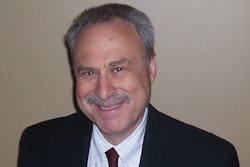April 10--Foreign companies are making big bets on the Gulf Coast petrochemical corridor, where capital investment is surging because of cheap U.S. natural gas, other lower costs and the existing industry infrastructure.
Domestic natural gas and its byproducts including ethane -- a building block petrochemical companies use to make plastics and other materials -- are low-priced relative to most of the world because of the surge in oil and gas production from U.S. shale plays.
The bargain-rate raw material has caused a stampede of recent international investment along the Gulf Coast in Louisiana and Texas, the center of the U.S. petrochemical industry.
A big part of the attraction is the price advantage of U.S.-produced ethane over naptha, a similar chemical building block derived from petroleum. The price of domestic oil, which is influenced more by global markets than the price of U.S. natural gas, has stayed high despite the U.S. shale boom.
"If you are in a region of the world that doesn't have the same natural gas prices, you are more or less forced to use naptha as your feedstock," said Christopher Guith, vice president of policy at the U.S. Chamber of Commerce.
"It is giving people who use ethane here a competitive advantage, which is why you are seeing companies around the world wanting to come here to take advantage of the price spread of the feedstock."
More than $90 billion of new plants and plant expansions are planned or under construction in the petrochemical belt that stretches from the Upper Texas Coast to New Orleans.
Foreign investors include South Africa-based Sasol. In Louisiana, it is building a $5 billion ethane cracker to split ethane into component parts that also are part of the chemical-making process, and a $14 billion gas-to-liquids plant, which will convert natural gas into diesel and other products.
In February 2012, Taiwan-based Formosa announced plans to build a $1.7 billion expansion of its Point Comfort plastic plant.
Linde Group, a German-based industrial gas producer, plans a $200 million investment in new equipment for its plant in La Porte.
New plants and expansions will increase the capacity of the petrochemical industry 33 percent by 2017, according to a December report by the Federal Reserve Bank of Dallas.
"A lot of companies left in the 2000s because they could get their energy cheaper or their labor cheaper," said Erica Bowman, chief economist of America's Natural Gas Alliance, an industry group. "That is why it is such a great story, because so many are coming back."
U.S. giants, including Dow Chemical Co., Exxon Mobil Corp. and Chevron Phillips Chemical Co., also have been motivated by lower natural gas prices, and are making multibillion-dollar investments in new and upgraded facilities. Dow is building an ethane plant at its complex in Freeport, Exxon Mobil is expanding its chemical complex in Baytown on the Houston Ship Channel, and Chevron Phillips broke ground April 2 on an ethane cracker in Baytown.
While the low natural gas prices are attracting the initial interest of foreign investment, it is the overall cost of doing business that is sealing these deals.
"High-cost operators abroad, when they come here, not only do they get cheap gas," said Michelle Michot Foss, chief energy economist for the Center for Energy Economics at the University of Texas. "The other things they are getting when they come here are cheaper land, cheaper labor, cheaper infrastructure, cheaper shipping."
The Gulf Coast is also hospitable because it allows companies to become part of a broader industry network.
"They are coming in for the total package, the ability to play in the market, to build commercial strategies, to build arbitrage strategies that they think will be more competitive," Foss said.
But the business goals for petrochemical investments in the U.S. also vary among countries, said Jorge Leis, the head of the oil and gas practice for Bain & Co. Leis said that while some companies are looking for high returns, others, especially in Asian countries, tend to make the investments more to lock in a future supply.
"It really is more of a procurement strategy of low-cost supplies than the actual production and sale of these commodities for profit," Leis said.
Whatever the reason, the investments are a significant vote of confidence in both the stability of future natural gas supplies and of the Gulf Coast business climate.
"You take a well- established firm like Sasol with a proven track record on the technology," Guith said. "In order for them to invest here, everything had to add up correctly. You don't make a $20 billion investment unless you have great certainty in the future of the country -- the access, the availability of the gas and the regulatory environment."
Copyright 2014 - Houston Chronicle


















